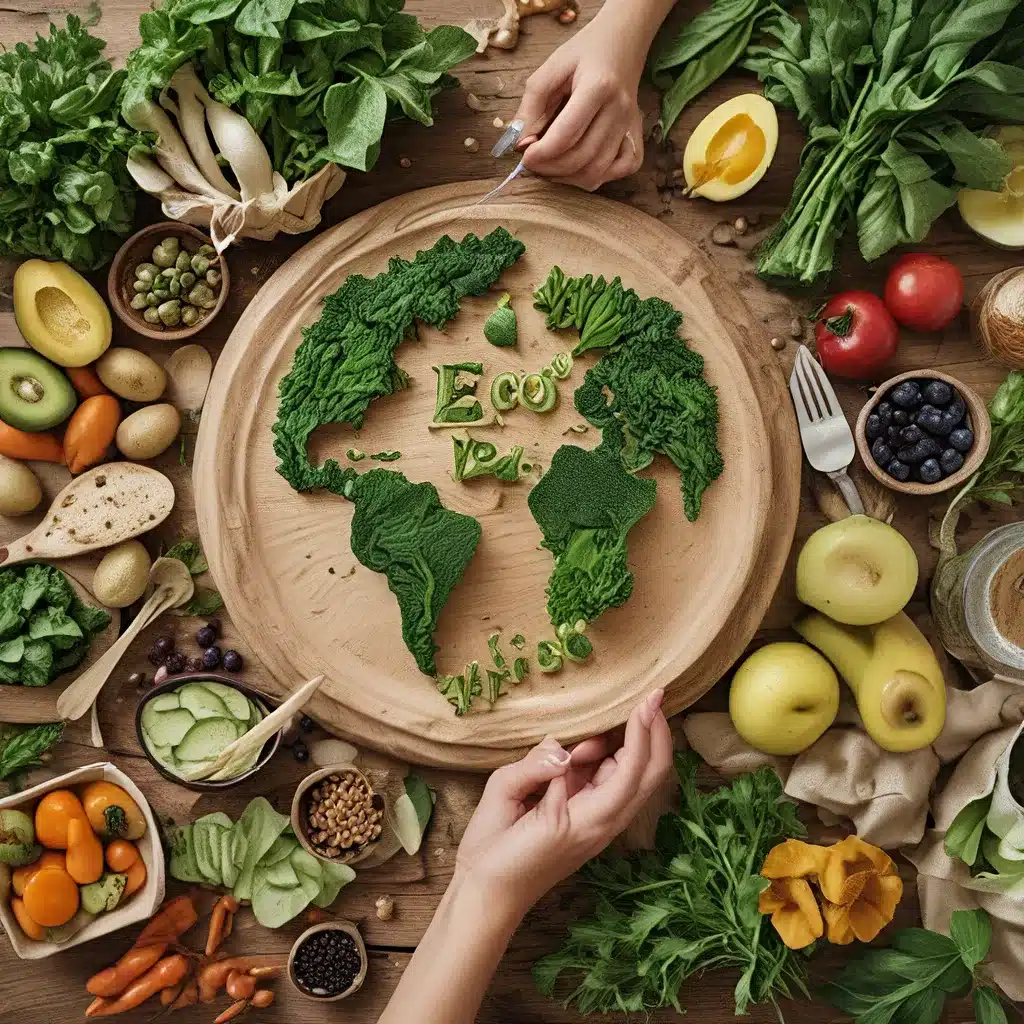
As a self-proclaimed eco-warrior, I’ve often found myself in heated debates about the role of individual responsibility when it comes to environmental sustainability. Some argue that it’s all about systemic change, that individual actions are just a drop in the bucket compared to the sweeping reforms needed from governments and big institutions. But I’ve never been one to buy into that defeatist mindset. I believe that each of us has a critical part to play in shaping a more sustainable future – and it all starts with the choices we make every day, like what we put on our plates.
The Trouble with Meat
Let’s be real, the environmental impact of the meat industry is no secret. From the excessive greenhouse gas emissions to the staggering water usage and deforestation, it’s clear that our current meat-centric diet is simply unsustainable. And yet, so many of us continue to indulge in our carnivorous cravings, often without a second thought.
Sure, I get it – giving up burgers and bacon can feel like a tough ask. I mean, who doesn’t love the savory, smoky goodness of a perfectly grilled steak? But here’s the thing: we don’t have to go cold turkey (pun intended) to make a difference. Even small changes, like swapping out a few meat-based meals each week for plant-based alternatives, can have a significant impact.
The Rise of Sustainable Eating
Thankfully, the tide is starting to turn when it comes to sustainable eating. More and more people are waking up to the harsh realities of industrial agriculture and seeking out eco-friendly alternatives. From the growing popularity of meatless burgers to the surge in plant-based protein powders, it’s clear that the market is responding to consumer demand for greener food choices.
And it’s not just about cutting back on meat. There’s a whole world of sustainable and ethical food options out there, from locally-sourced produce to fair trade coffee and chocolate. By making mindful decisions about the origins and production methods of the foods we buy, we can reduce our carbon footprint and support the kind of food system we want to see.
The Power of Individual Action
Now, I know what some of you might be thinking: “But how much of a difference can I really make as an individual?” It’s a fair question, and one that I’ve grappled with myself. After all, in a world of nearly 8 billion people, it’s easy to feel like our individual choices are just a drop in the ocean.
But here’s the thing: individual action is the foundation for collective change. When we start to shift our own behaviors and values, it has a ripple effect that can inspire those around us to do the same. And as more and more people embrace sustainable eating habits, the demand for eco-friendly products and infrastructure will grow, pushing governments and industries to catch up.
Just look at the rise of the vegan movement or the surge in renewable energy – these weren’t the result of top-down mandates, but rather the collective power of individual choices and grassroots activism. By taking small, consistent steps to reduce our environmental impact, we can contribute to a larger cultural shift towards sustainability.
Getting Started with Sustainable Eating
So, where do you even begin when it comes to transitioning to a more sustainable diet? Well, the good news is that there are plenty of easy ways to get started:
- Reduce your meat consumption: Aim for one or two meat-free days per week, and explore delicious plant-based alternatives like tofu, lentils, or quinoa.
- Buy local and seasonal: Support your local farmers and producers by visiting farmers’ markets or subscribing to a CSA box. This helps reduce the environmental impact of long-distance transportation.
- Choose sustainable seafood: Look for wild-caught or responsibly farmed fish and shellfish, and avoid overfished species.
- Minimize food waste: Get creative with leftovers, compost your food scraps, and plan your meals to reduce waste.
- Opt for organic and fair trade: When possible, choose organic produce and fair trade goods to support more ethical and environmentally-friendly farming practices.
The key is to start small and build sustainable habits over time. Remember, every little bit counts when it comes to protecting our planet. And who knows, you might even discover some delicious new foods and recipes along the way!
The Bigger Picture
Of course, sustainable eating is just one piece of a much larger puzzle. As individuals, we have a responsibility to think critically about the impact of our choices and to advocate for the kind of systemic changes that will make eco-friendly living more accessible and attainable for all.
That might mean supporting political candidates who prioritize environmental and social issues, or getting involved with local sustainability initiatives. It could also mean educating ourselves and sharing what we’ve learned with our friends, family, and community.
After all, as my old mentor Lester Milbrath used to say, “The only way to save the planet is through social learning that would enable us to learn our way to a sustainable society.” And that starts with each of us taking individual responsibility and collective action.
So, what are you waiting for? It’s time to embrace the power of sustainable sustenance and do your part to create a healthier, more eco-friendly future for us all. Who knows, you might just discover that eco-friendly eating is not only good for the planet, but also delicious and satisfying for your taste buds.
Start your sustainable eating journey today with Saint Marc. With a wide selection of plant-based options, locally-sourced produce, and ethical food choices, we’re committed to making it easy and enjoyable to reduce your environmental impact one meal at a time.

